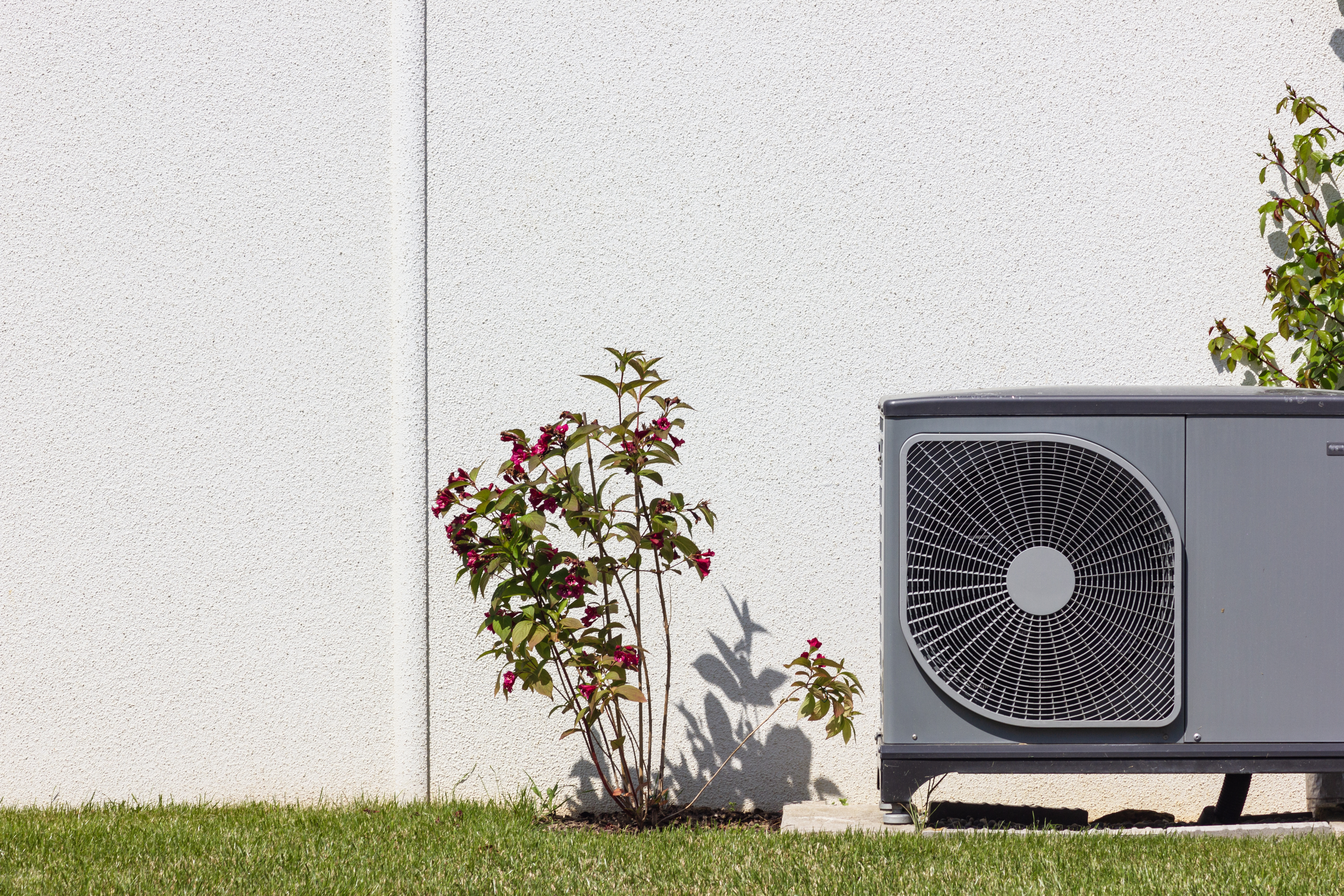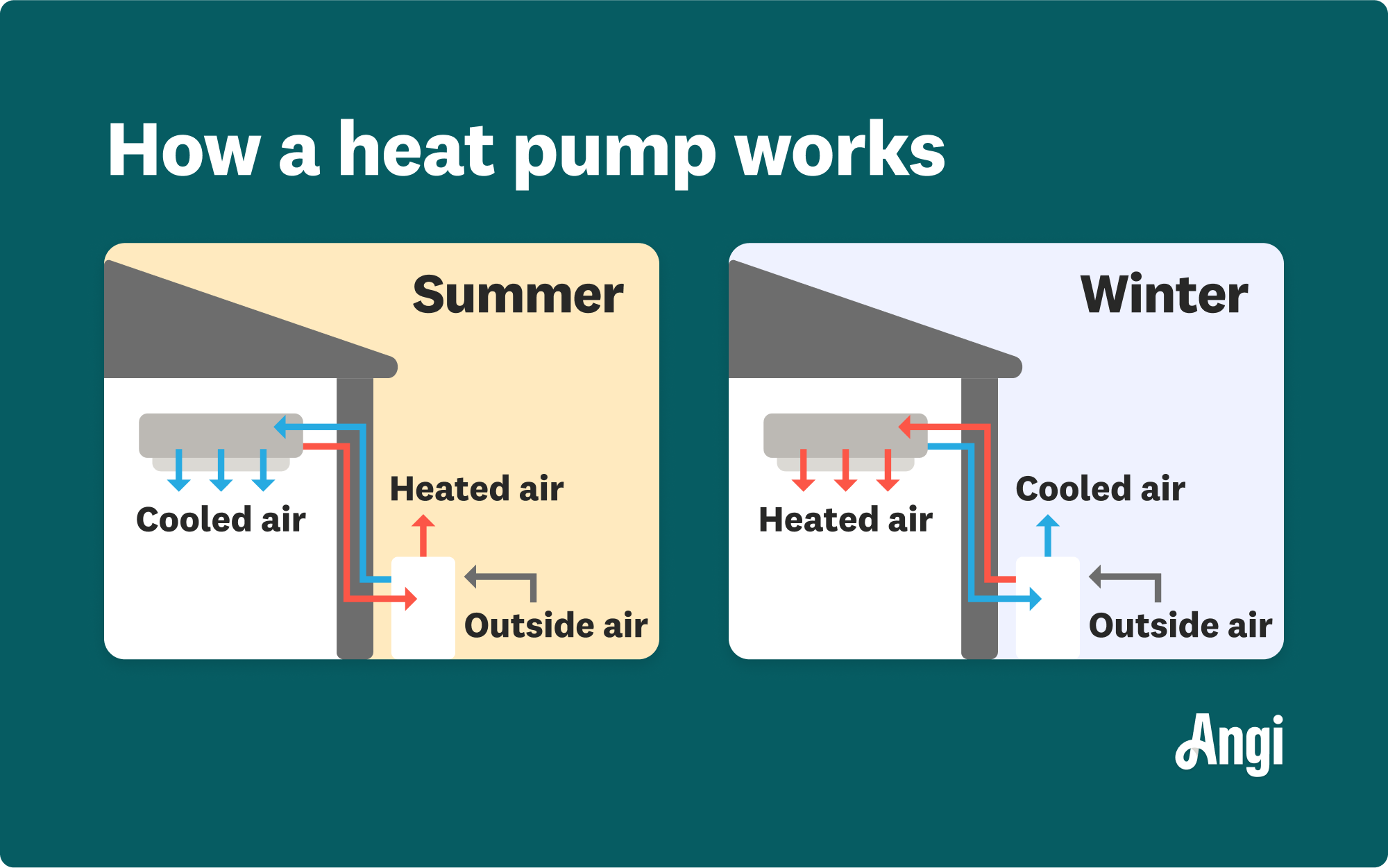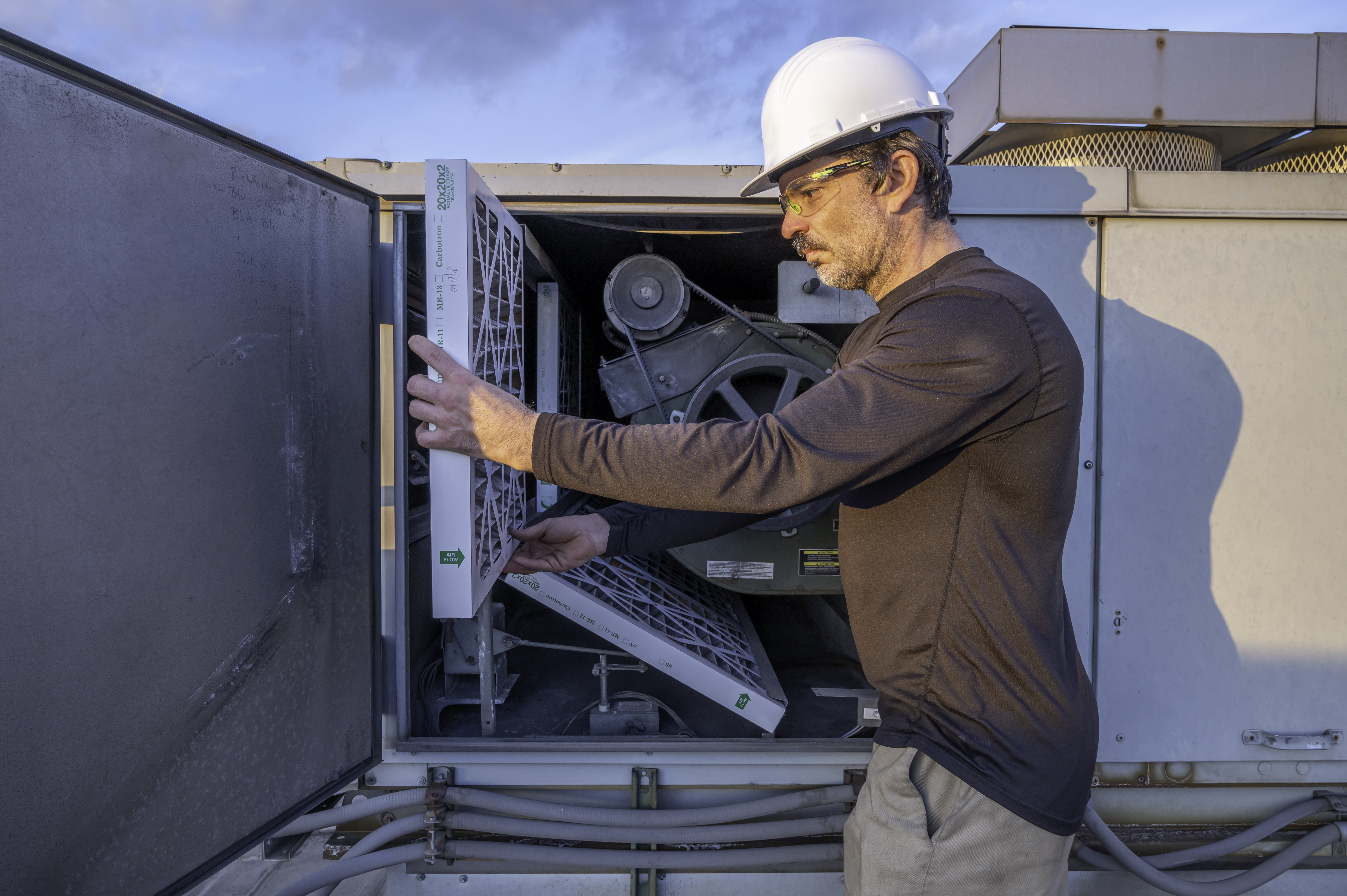
When your HVAC system is acting up, it could be the blower motor to blame. See how much blower motor replacement costs and what impacts the price here.
Heating and air conditioning service costs depend on your project and location. Check with a local pro for your specific job.
Your heat pump’s type and size will impact your overall heat pump costs in Washington, D.C.
Other costs for this project include professional labor, permits, and sales tax.
If you’re eligible, you can reduce your heat pump installation costs with a rebate from the DC Sustainable Energy Utility.
The average heat pump cost in Washington, D.C., is $5,896, but it’s common to spend between $4,477 and $7,349 on this project. Prices vary based on the type and size of the heat pump, as well as the cost of professional labor. Here’s how the specifics of your job affect your heat pump installation costs in Washington, D.C.
Whether you’re installing a heat pump to fend off the summer heat and humidity or stay toasty through winter (or both), here’s a breakdown of what it will cost you.
BTU, or British Thermal Unit, is a unit that measures how much energy it takes to raise the temperature of one pound of water by one degree Fahrenheit. For heat pumps, each ton of capacity is equivalent to roughly 12,000 BTUs.
In the early phases of your project, you’ll need to choose the right kind of heat pump for your Washington, D.C., home—and the type you pick will have a direct effect on your costs.
Air-source heat pumps (including the popular ductless mini-split heat pumps) are more affordable, while ground-source (also known as geothermal) heat pumps are pricier.
| Heat Pump Type | Average Unit Cost |
|---|---|
| Ductless mini-split | $700–$6,000 |
| Air source | $1,500–$4,500 |
| Ground source | $2,400–$8,000 |
The size of your heat pump makes a difference in your costs, too. Manufacturers list heat pump sizes in tons, British Thermal Units (BTUs), or both—and either way, a higher number equates to more heating and cooling capacity (and a higher price tag).
Here are some common air-source heat pump sizes (in tons and BTUs), along with their average unit costs (not including installation):
| Heat Pump Size (in Tons) | Heat Pump Size (in BTUs) | Average Unit Cost |
|---|---|---|
| 2 | 24,000 | $1,200–$3,000 |
| 3 | 36,000 | $2,200–$5,800 |
| 4 | 48,000 | $3,000–$7,000 |
Heat pumps have two efficiency ratings: Seasonal Energy Efficiency Ratio (SEER) for cooling and Heating Seasonal Performance Factor (HSPF) for heating. These systems measure how efficiently the unit cools or heats your home—and like heat pump sizes, higher numbers translate to better efficiency and more expensive unit costs.
In this table, you can see how heat pump costs increase as their SEER ratings go up:
| Heat Pump SEER Rating | Average Unit Cost |
|---|---|
| 15 | $1,800–$5,900 |
| 16 | $2,400–$6,200 |
| 18 | $2,900–$6,700 |
| 20 | $3,600–$9,500 |
Heads up: In the U.S., there are minimum standards for HVAC efficiency that vary by region. For example, a new split-system heat pump in Washington, D.C., must have a SEER rating of 15 or higher and an HSPF rating of at least 7.5.
Unless you buy a ductless heat pump, you’ll need ductwork to push warm or cool air from your heat pump into your house. If you don’t currently have a duct system, you can install one for $3,000 to $7,500 per 300 linear feet.
Even if your home already has ductwork, there are situations where you’ll need to replace it before installing a new heat pump. For instance, if your existing ductwork is damaged or incompatible with your new HVAC system, you’ll need an upgrade. On average, ductwork replacement costs $419 to $1,278 in Washington, D.C.

In this project, there are a few other expenses that will bump up your budget, including permit fees and the cost of hiring a local heat pump repair pro.
When you hire a heat pump installer in Washington, D.C., make sure they’re licensed by the District of Columbia Board of Industrial Trades. Also, your contractor must be certified by the Environmental Protection Agency (EPA) to handle refrigerants.
To find the most qualified HVAC professionals in D.C., look for those with North American Technician Excellence (NATE) certifications. If a pro has this voluntary certification, it means they have at least several years’ worth of HVAC experience and have passed exams to prove their knowledge.
In Washington, D.C., installing and replacing HVAC equipment requires a mechanical permit from the Department of Buildings (DOB). Your installer should obtain this permit before any work begins—otherwise, you could receive a fine.
If you switch from a gas furnace to a heat pump or upgrade to a more efficient heat pump, you could get a rebate from the DC Sustainable Energy Utility (DCSEU). Rebates vary from $1,000 to $1,500, depending on the heat pump’s efficiency level.

Since a heat pump provides cooling and heating, it can be a big draw for homebuyers in Washington, D.C., especially if it’s a high-efficiency model. It offers people the peace of mind that their new home will stay comfortable all year long—even through D.C.’s heatwaves and snowstorms.
Plus, having a brand-new unit gives buyers the confidence that they won’t have to replace their HVAC system for a decade or more. After investing in this type of upgrade, you could see a 5% to 7% hike in your home’s value.
Home is the most important place on earth, which is why Angi has helped more than 150 million homeowners transform their houses into homes they adore. To help homeowners with their next project, Angi provides readers with the most accurate cost data and upholds strict editorial standards. We survey real Angi customers about their project costs to develop the pricing data you see, so you can make the best decisions for you and your home. We pair this data with research from reputable sources, including the U.S. Bureau of Labor Statistics, academic journals, market studies, and interviews with industry experts—all to ensure our prices reflect real-world projects.
Want to help us improve our cost data? Send us a recent project quote to [email protected]. Quotes and personal information will not be shared publicly.
From average costs to expert advice, get all the answers you need to get your job done.

When your HVAC system is acting up, it could be the blower motor to blame. See how much blower motor replacement costs and what impacts the price here.

Moving a furnace a few feet is not a huge matter. However, moving a furnace to another room or different part of the house will probably cost a few thousand dollars. It's a major job involving numerous different professionals.

What you’ll pay in Columbus, OH, for furnace repairs depends on many factors. Here’s a breakdown of what can go wrong and the cost to fix those issues.

Learn how to add Freon to your AC unit with our step-by-step guide, and keep your home cool with a properly functioning AC unit.

Wondering who to hire for swamp cooler installation? Learn when to call an HVAC contractor, electrician, or handyperson, and what to expect.

Keep your home perfectly cool during the warm months. Learn about nine types of air conditioners and how to choose the right one for your home.